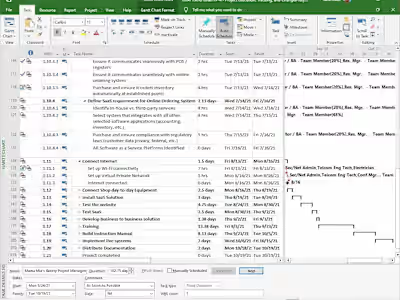Presentation on Cloud Infrastructure
A set of slides for a graduate class presenting the benefits and possible drawbacks of adopting a cloud infrastructure.
The presentation addressed the basics of cloud computing including the different deployment models, the various types of cloud services, economic analysis for the client in
transitioning to cloud computing, essential IT business requirements, and the SWOT analysis to help determine the gains of adopting cloud technology.
Elements in cloud infrastructure include servers, whether they would be virtual, bare-metal, containers, and serverless computing resources. Virtualization environments offer flexibility with hypervisor management of virtual machines by sharing resources. Scalability of storage when needed within minutes, block storage or solid state storage (SSD), and object storage. Networks are also discussed in the presentation such as local area networks, wide area networks, and public networks.
Advantages to cloud computing including quick deployment, 100% uptime, upgrades and software changes remotely. Disadvantages include migration time, costs may be at first more than anticipated, application integrations that delay processes, and compliance with regulatory entities.
Costs analysis included budget and expenditures calculated for the first five years and the estimated savings over the five years, including the estimated ROI and cash flows.
The SWOT analysis presented the strengths, weaknesses, threats, and opportunities for the client in their current systems and in implementing the new cloud infrastructure.
Cyber security was the major factor in implementing a new cloud infrastructure and a recount of what measures can be put in place was detailed in the presentation.
Like this project
Posted Jan 31, 2024
A presentation on the benefits and possible drawbacks of adopting cloud infrastructure and the transition from current non-cloud systems.
Likes
0
Views
3



